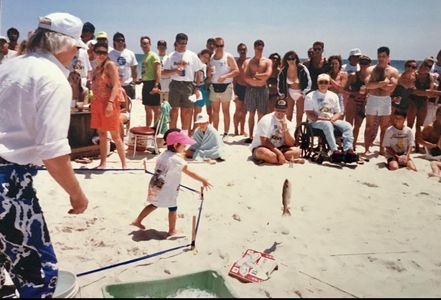Ken Stabler
 Ken Stabler was a former football player for the University of Alabama and the NFL, where he became a Super Bowl Champion and was posthumously inducted into the Pro Football Hall of Fame in 2016. After his playing career, he became a sports analyst. In addition to football, he is remembered as a loving and devoted father.
Ken Stabler was a former football player for the University of Alabama and the NFL, where he became a Super Bowl Champion and was posthumously inducted into the Pro Football Hall of Fame in 2016. After his playing career, he became a sports analyst. In addition to football, he is remembered as a loving and devoted father.
During his life, Stabler voiced that he was interested in brain donation and upon his death, his family donated his brain to the BU CTE Center where he was diagnosed with stage III CTE. We thank the Stabler family for their generous donation and commitment to our research.
Read Ken’s story below.
Ken Stabler is a well-known name in the world of American football. In college, he attended the University of Alabama where he became a national champion. He then spent 15 years in the NFL, including ten seasons with the Oakland Raiders, during which he became a Super Bowl champion. He was later inducted into the Pro Football Hall of Fame.
 After his legendary career, which spanned nearly thirty years of football from the time he first started playing in middle school, he continued in the broadcast world as a sports analyst. One of his daughters, Alexa Stabler-Adams, said “he was one of those lucky athletes that was able to make football his lifelong career even after he stopped playing.”
After his legendary career, which spanned nearly thirty years of football from the time he first started playing in middle school, he continued in the broadcast world as a sports analyst. One of his daughters, Alexa Stabler-Adams, said “he was one of those lucky athletes that was able to make football his lifelong career even after he stopped playing.”
Besides football, he also tried high school basketball and baseball and was even offered the opportunity to play baseball professionally, which he turned down to play football.
 Outside of sports, he was a family man. He has three daughters, Alexa, Marissa, and Kendra, and four grandsons, Jack, Justin, James Kenneth (J.K.), and Welles, the youngest addition to the Stabler family who arrived on Christmas Day in 2023, sharing a birthday with his grandfather. “He was really the ultimate girl dad before it became cool to be a girl dad, before it really became popular,” Alexa said. “He was always shuttling my little sister and me to whatever practices we had, or actual events, or going to the movies with our friends. He was totally devoted way before I think being a highly involved dad became expected.”
Outside of sports, he was a family man. He has three daughters, Alexa, Marissa, and Kendra, and four grandsons, Jack, Justin, James Kenneth (J.K.), and Welles, the youngest addition to the Stabler family who arrived on Christmas Day in 2023, sharing a birthday with his grandfather. “He was really the ultimate girl dad before it became cool to be a girl dad, before it really became popular,” Alexa said. “He was always shuttling my little sister and me to whatever practices we had, or actual events, or going to the movies with our friends. He was totally devoted way before I think being a highly involved dad became expected.”
Ken’s favorite things were family and football. “That was life until the end.”
During his life, both he and his family began to notice changes in his personality and demeanor. Alexa described it as the “obvious physical signs of having a long career, mental signs of… having a long career in professional football.”
He began repeating himself a lot, even within the same conversation or on the same day. He began to experience confusion when driving and had tinnitus (ringing in the ears). Physically, he took several medications for pain.

Ken suspected he may be suffering from CTE during his lifetime. “I remember on several occasions, my dad voicing his desire to [help] this cause, and… I think that was based on his experience. We were able to recognize the signs of his career in football.”
Ken Stabler passed away from colon cancer in 2015 and his family honored his wishes and donated his brain to the UNITE Brain Bank at the Boston University CTE Center where he was diagnosed with stage III CTE.
“I knew something was going on. It was hard not to,” Alexa said of receiving the results. “I mean, [the feeling] wasn’t like ‘bad’ or ‘relieved,’ it was just kind of like, ‘okay, that’s what’s going on.’ Honestly, I think maybe my primary emotion was grateful there was an answer, and that his experience with his body could be used to further the research… this is a very real issue and, hopefully given his profile as a very successful football player, it will raise awareness of the cause and help parents make informed decisions as to what they let their child be involved in, and when and to what extent.”

His family is glad to know they were able to honor his wish. “It was clear he was in a lot of pain, so I know he was always the one who wanted to help others,” she said. “He loved children, saw his grandsons play football, and I think he knew that if he could help make it safer, then he would do what he could.”
Alexa also emphasized the importance of furthering CTE research. “Any knowledge and science and research that I can have to help make decisions about my son’s future I want, and I value that research,” she said. “I give a lot of weight to what science tells us and I have to think that I’m certainly not alone. There are a lot of parents that feel that way. So primarily my motivation is being a mom and my son’s future.”

When Alexa thinks about her father, she remembers “that he really went above and beyond as a dad.” She already sees a lot of him in her two-year-old son, James Kenneth Adams, who is named after him. She is looking forward to telling him about his grandfather as he gets older, including his legendary football career, but also the type of person he was and the impact he left on others.
“He was the most wonderful Dad.”
Ken’s diagnosis was made by Dr. Ann McKee at the BU CTE Center. If you would like to support the BU CTE Center’s research and help give more families life-changing diagnoses, you can donate here.
If you or a loved one are interested in brain donation, please view our Frequently Asked Questions (FAQs) and brain donation brochures for more information.
You can visit our Resources page to find resources for anyone struggling with suspected CTE symptoms.
This story was written by Amanda V. Cabral at the BU CTE Center. If you are interested in having a donor story written for your loved one, please reach out to her at avcabral@bu.edu.